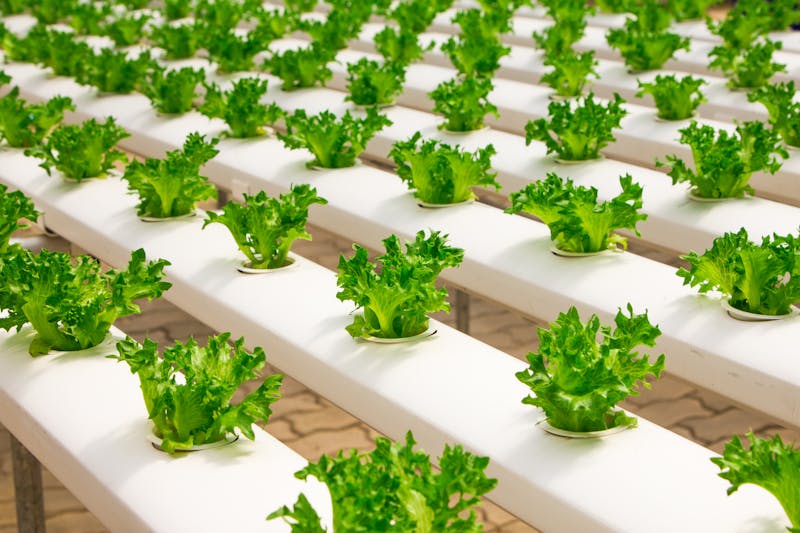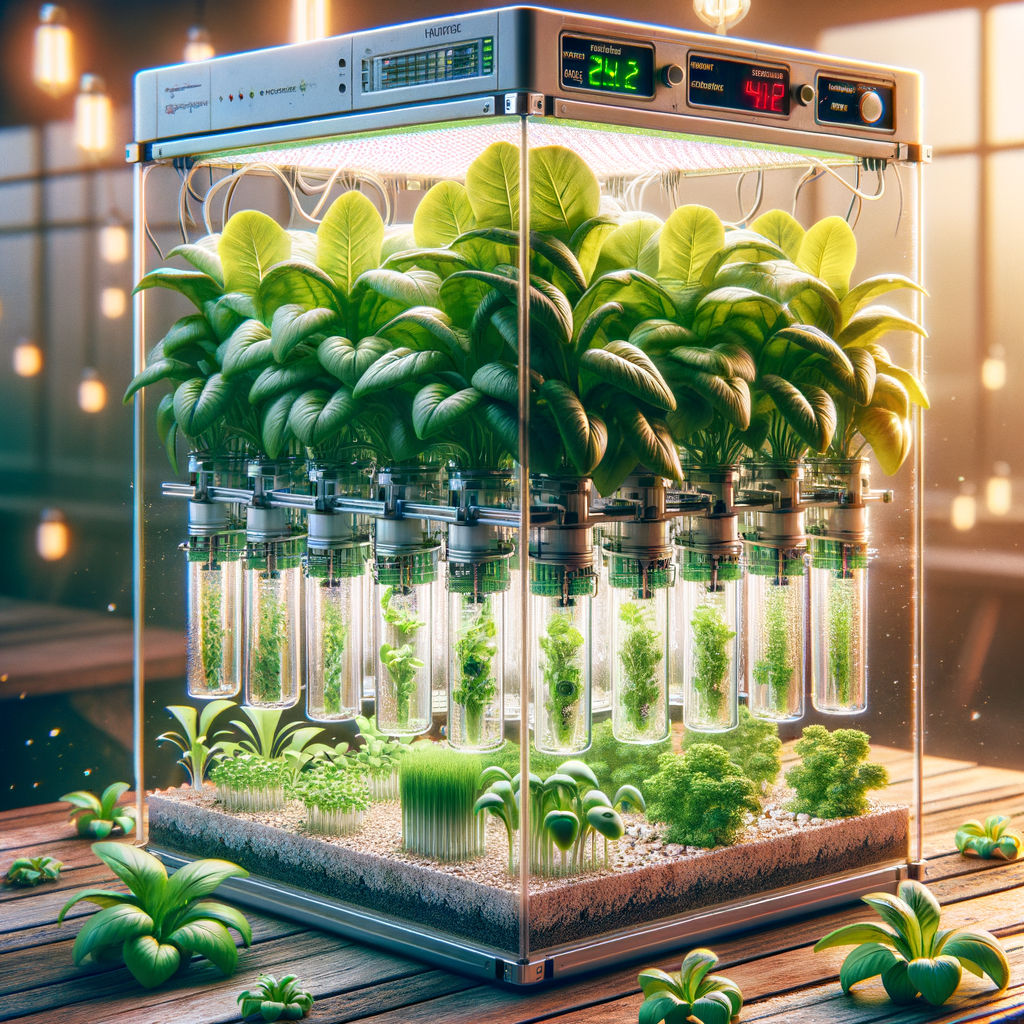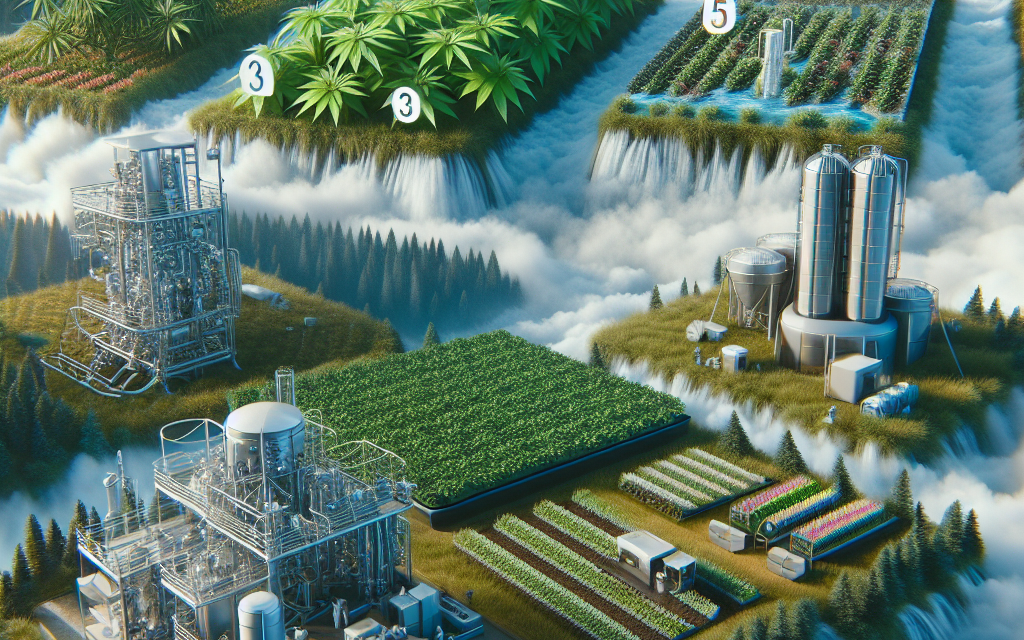When I first started my journey with gardening, the idea of growing plants without soil seemed bizarre, almost counterintuitive. Hydroponics was like a magical concept that defied everything I thought I knew about planting and growing food. Then I stumbled upon an even bigger question:
Can hydroponics be organic?
It’s not just a theoretical curiosity—this debate has real implications for how we grow our food, minimize environmental impact, and redefine farming practices for the future. Let’s dive into this fascinating topic, clarify the science, explore the regulations, and bring some clarity to this nuanced question.
What Exactly Is Hydroponics?
Before we get to the organic part, it’s crucial to understand what hydroponics is in the first place. For those who might not be familiar, hydroponics is a method of growing plants without soil. Instead, nutrients are delivered directly to the plant roots through a water-based solution.
There are various techniques in hydroponics, such as:
- Nutrient Film Technique (NFT)
- Deep Water Culture (DWC)
- Aeroponics (where roots are misted with nutrient-laden water)
The beauty of hydroponics lies in its efficiency. Plants can grow faster because they receive perfectly calibrated nutrients when they need them, and hydroponics uses far less water compared to traditional soil-based farming.
What Does “Organic” Really Mean?
Now, let’s break down the other half of the question: What does it mean for something to be organic?
Early in my exploration, I thought “organic” simply meant avoiding synthetic chemicals. While that’s part of it, the reality is more complex. Organic refers to a specific standard of agricultural practices that:
- Promote ecological balance
- Conserve biodiversity
- Avoid synthetic pesticides, fertilizers, and GMOs
Organic certification (governed by the USDA in the United States or other bodies worldwide) comes with strict rules—covering not only inputs (like fertilizers or pesticides) but also the growing process itself.
Soil health is a major pillar of organic farming, involving practices like composting, crop rotation, and enriching the soil with organic matter. Where does that leave soil-free hydroponic systems?
Can Hydroponics Align With Organic Principles?
At first glance, hydroponics seems to conflict with organic principles, primarily because there’s no soil involved. However, hydroponic systems do offer environmental benefits:
- Minimal water waste
- Reduced need for synthetic pesticides (pests are less common in controlled environments)
- Potential for local/urban production, lowering transportation impact
These advantages can align with organic ideals in some respects, and this grey area is where the debate truly begins.

Regulatory Hurdles: Why Hydroponics Faces Challenges with Organic Certification
When I looked into the legal status of “organic hydroponics,” it quickly became clear this is a divisive issue, with rules differing by country and even within countries.
- United States (USDA):
- The USDA’s National Organic Program (NOP) does not explicitly forbid hydroponics.
- Some hydroponic farms are certified organic, provided they meet other organic regulations (e.g., using approved organic inputs and avoiding synthetic pesticides).
- The absence of soil can still create complications because USDA standards require maintaining or improving soil quality.
- European Union (EU):
- Hydroponic systems generally cannot be certified organic.
- EU organic standards emphasize soil health to such an extent that soil-free systems are deemed incompatible.
Depending on your location, “Can hydroponics be organic?” might be answered with a yes, no, or “it depends.”
Organic Inputs in Hydroponics: A Critical Element
What makes hydroponics potentially organic—or not—often hinges on the nutrient solution. Traditional hydroponic systems rely on synthetic fertilizers (like mineral salts), which are typically disallowed for organic certification.
Some hydroponic growers have found workarounds by using organic inputs such as:
- Compost teas
- Fish emulsion
- Bat guano
- Seaweed extract
Switching to organic nutrients is more challenging because they’re less stable and can clog hydroponic systems. Still, many farmers believe it’s worth the extra effort to align with organic principles.
Is Organic Certification the Only Benchmark?
As someone passionate about sustainable gardening practices, I began wondering if “certified organic” should be the ultimate goal for hydroponic systems. While certification offers consumer trust and accountability, there are alternative frameworks that hydroponic growers could emphasize:
- Integrated Pest Management (IPM): Controlled environments allow for better pest monitoring, minimizing the need for harmful chemicals.
- Water Reuse: Recycling water conserves one of Earth’s most precious resources.
- Eco-Friendly Practices: Employing renewable energy can significantly lower a hydroponic farm’s carbon footprint.
While the “organic” label is meaningful, I believe it’s not the only way hydroponic systems can prove their commitment to sustainability.
The Case for a New Paradigm
Here’s a thought I often return to: instead of trying to force hydroponics under existing organic definitions, perhaps we need new standards that reflect the unique benefits and challenges of hydroponics.
An alternative certification could focus on:
- Sustainable water management
- Carbon footprint reduction
- Use of renewable energy
- Avoidance of synthetic inputs
This new system could coexist with traditional organic certifications, giving consumers a transparent way to support environmentally responsible hydroponics.
My Personal Take on Hydroponics and Organic Farming
So, can hydroponics be organic? It depends on how you define “organic.” If you’re talking about certification, it varies based on where you live and how regulators interpret organic standards. If you’re asking whether hydroponics can embody the spirit of organic farming—sustainability, eco-friendliness, minimal harm to the planet—the potential is definitely there.
I set up a small hydroponic system at home using organic inputs. It was tougher than standard hydroponics, but the satisfaction of growing food naturally—without synthetic chemicals—was worth it.
In the end, it’s less about labels and more about intention. Whether you’re a backyard gardener or a commercial farmer, the choice to minimize harm and prioritize sustainability matters most.
Conclusion
In the ongoing debate of “Can hydroponics be organic?” there are no simple answers. Soil-free cultivation differs fundamentally from traditional farming, and the official definition of “organic” can present hurdles. Yet there’s no denying the potential of hydroponics to align with eco-conscious, sustainable values.
Whether you’re a consumer or a grower, staying informed and open-minded is key. Certified organic or not, hydroponics can play a crucial role in feeding the world responsibly. It’s up to us to embrace innovation while maintaining high standards of environmental stewardship.
I hope this has shed some light on the nuances of the topic. Perhaps you’ll try growing organically with hydroponics yourself—it’s a fascinating journey!
© 2025 NewsBucket.org All rights reserved. This document cannot be duplicated or distributed in any way, whether it be electronically, mechanically, by photocopying, recording, photocopying, or another method, without NewsBucket.org's prior written consent.



0 Comments